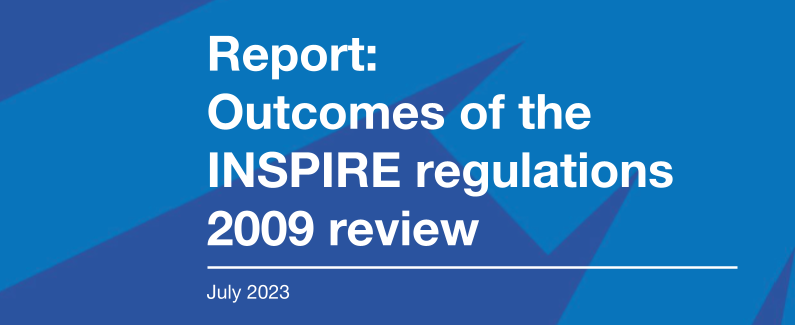
This report has been researched and produced by the Open Data Institute (ODI) in collaboration with Defra, to assess the extent to which INSPIRE has achieved its objectives and make recommendations for INSPIRE’s future in the UK policy context. Geospatial data is data that describes a location; it has the potential to improve our understanding of the world around us. This has particular importance in policy making. Understanding where things happen ensures interventions are targeted and efficient. Many types of data, such as environmental, housing and transport data, are inexorably linked to a sense of place. To harness the insights and realise the value of geospatial data, it needs to be easy for people to find, access, combine and compare. This requires standardised approaches to data sharing. The INSPIRE Regulations 2009 (INSPIRE) were introduced to standardise how geospatial data relating to the environment is published by public bodies. This is to improve how policymakers can access and use environmental data. At the ODI we have expertise in national and international data ecosystems, geospatial data, data infrastructure, and the effective development and adoption of standards. Therefore, we were delighted that Department for the Environment (Defra) commissioned the ODI to evaluate the extent to which INSPIRE has achieved its objectives. This report was developed with the organisations represented on the INSPIRE Compliance Board:
- Department for the Environment and Rural Affairs
- Ordnance Survey
- Local Government Association
- Geospatial Commission
- Devolved Administrations
- Data Standards Authority
It summarises the findings of our research and makes recommendations as to the future of INSPIRE in the UK. The outputs of this project will inform Defra’s post-implementation review (PIR) of INSPIRE. Highlights
- INSPIRE catalysed a number of positive changes across the UK public sector.
- INSPIRE suffered from a lack of user (policymaker) involvement throughout its development and implementation, meaning that even where technical implementation was good, benefits were not always realised.
- Public bodies that benefited most from INSPIRE are those which identified a clear organisational use case for it.
- Maintaining appropriate ownership of data infrastructure is vital for sustainable funding and maintenance. Ownership should align with specific use cases, and in cases where multiple use cases exist, a collaborative consortium approach should be adopted.
- Industry standards have overtaken the framework of standards that constitute INSPIRE, rendering the sole implementation of INSPIRE no longer the most effective approach for achieving data findability, accessibility, interoperability, and reusabilty.
- While the INSPIRE standards need updating, there are a large number of use cases for the data infrastructure that INSPIRE can build.
- Identifying key stakeholders, including those external to the government, who can benefit from spatial data infrastructure is crucial for determining the future of INSPIRE in the UK.
- Initiatives that require data publishers to adopt new practices should consider introducing incentives for data publishers.